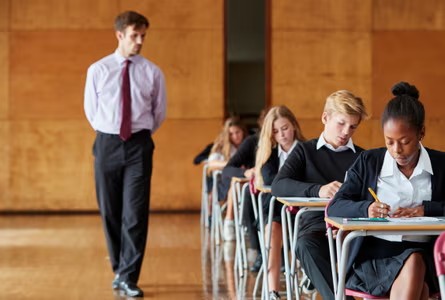If you wish to add articles of interest to this site or see a forum, please contact me via my e-mail address. I will 'eventually' reply to all posts. All submitted articles will be author acknowledged unless otherwise requested.
Copyright © 2026 by Nigel G Wilcox
All Rights reserved
E-Mail: ngwilcox100@gmail.com
Web Title: paragon.myvnc.com
2026
Designed by GOEMO.de
Powered by S-AM3L1A-NGW
NW Education, Training & Development
Looking at Education today, one Perspective...
Parent Site: http://paragon.myvnc.com Paragon Publications UK
My Personal Introduction to Teaching from My Experiences
and the Reason for This Website with Opinions...
Education & Professional Development
Birmingham ICC 2001
1-3
1-3
Pages
Left-Wing Education?
Composite: Guardian Design; Matthew Horwood/Alamy; monticelllo/Getty Images
© Composite: Guardian Design; Matthew Horwood/Alamy; monticelllo/Getty Images
‘It’s a logistical nightmare,” sighs associate headteacher Kirstie Moat after taking me through the mind-boggling complexities of the weeks ahead. Her school, Harrogate Grammar, a state secondary school in North Yorkshire, is in the final throes of preparations for exam season and it is a marathon task.
This is not about teaching algebra, or Jane Austen, or the periodic table. She’s talking about special “access arrangements” – a range of adaptations for students with additional needs who would otherwise struggle to take exams – for GCSEs, A-levels and other qualifications.
The aim is to remove barriers and provide a level playing field, which seems laudable. The problem is that the number of pupils who have these arrangements has increased so significantly that schools are struggling with the practicalities.
Extra exam time: why do so many schoolkids suddenly need it?
“It’s grown exponentially since we came back after Covid,” Moat says. According to England’s exams regulator, Ofqual, in 2023/4 the number of approved access arrangements was up 12.3% on the previous year to 625,000, compared with 460,000 in 2019/20. In Scotland the numbers are also rising, from 62,515 requests for assessment arrangements in 2019, to 91,880 in 2023. In Wales there were 30,005 approved access arrangements in the 2023 to 2024 academic year, up 11.1% from the previous year. The uptick reflects the increase in anxiety issues and additional special educational needs since the pandemic.
It means students may be sitting the same exam, but they won’t be in the same room. Some will be in the sports hall – the kind of setting those of us who sat our exams en masse in the last millennium might recognise. Others might be in the headteacher’s office, one to one with an invigilator. Some will be using a traditional pen and paper, others will have laptops. And a significant proportion of pupils will be given longer to finish the paper, often on account of diagnosed conditions such as attention deficit hyperactivity disorder or dyslexia.
Three in 10 candidates were awarded 25% extra time in 2023/4, according to Ofqual. Of particular concern is the proportion of pupils getting extra time in private schools – almost 42% compared with 26.5% in state secondaries – which has led to suspicions that some schools are “gaming” the system.
Moat takes me through the increasingly complex access arrangements she and her team have to negotiate. She takes a deep breath before she begins. “It’s a big machine,” she says, by way of warning. This summer, 783 Harrogate Grammar students will sit exams at the end of years 11 (GCSEs) and 13 (A-levels), meaning the school will have to juggle more than 4,000 exam entries, 238 papers and 10,110 individual exams. At GCSE level, a single pupil can expect to sit up to 35 papers.
In year 11, out of a cohort of 290 students, 84 (29%) have some kind of access arrangement the school has to accommodate. Of those, 58 (20% of all GCSE candidates) have extra time and 10 students require one-to-one invigilation. “It might be that they need a reader who physically reads it out to them, or that they need rest breaks so they’re not disturbing other people,” says Moat. “We’ve got one student that has home invigilation, so it’s a medical need. That means we have to send somebody to their house to do that for them.”
She goes on: “We have 35 students that need an alternative smaller room for their exams because they can’t face going into the big hall,” owing to anxiety issues. Students who struggle with reading or writing due to a disability or other learning difficulty may need additional technology: 21 of Harrogate’s students need a word processor and seven have an electronic reader. On top of that, 17 candidates with sensory or physical needs may require supervised rest breaks.
In year 13, 75 of the school’s A-level students have some kind of access arrangement – 24% of a cohort of about 320. Of those, 48 students get extra time, five students require one-to-one invigilation, two require home invigilation, 34 require alternative smaller rooms for anxiety and other issues, and 21 need word processors, 11 need an electronic reader and 22 are entitled to rest breaks. “There’s so much reliance on tech inside and outside school that handwriting stamina is becoming a bit of an issue,” says Moat.
The additional costs are enormous: more than £100,000 on invigilators to cover the one-to-ones and small groups. “That’s a huge expense on top of the cost of the exams,” says Moat, at a time when school budgets are ruinously tight.

The balance has tipped so the minority of students sit in the big hall.’ Photograph: Posed by models. monkeybusinessimages/Getty Images
The other logistical challenge is space – finding enough rooms for pupils who can’t cope in the sports hall, while continuing to try to run a large secondary school as normal. These are challenges that all schools are grappling with. One headteacher told of a school where all the administrative staff were told to work from home for six weeks while the exams were on so their offices could be turned into exam rooms. Some further education colleges have to suspend all learning just to accommodate GCSE maths and English resits.
Continued>>>









